Monkey Madness in Thailand: From Coconut Milk to Temple Adventures
If you’re planning a trip to Thailand and you’re a fan of the cheeky and mischievous creatures known as monkeys, then you’re in for a treat. Thailand is home to a wide variety of monkeys, and encountering these playful creatures can be both entertaining and unforgettable. From sipping on coconut milk to exploring ancient temples, here’s everything you need to know about monkeys in Thailand.
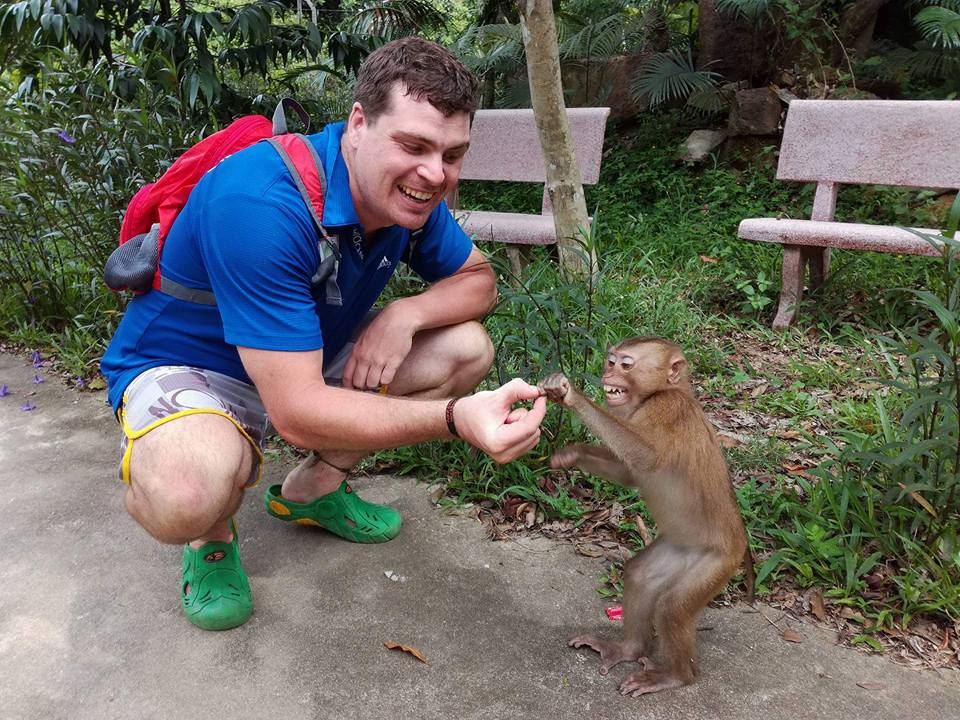
Key Takeaways
- Thai monkeys exhibit a wide range of behaviors, from acrobatic swinging and jumping to clever problem-solving and tool use.
- Monkey society in Thailand is governed by complex hierarchies and power struggles.
- Thai monkeys have a rich culinary repertoire and are known for their adventurous eating habits.
- Grooming and adornment play an important role in monkey society, with monkeys displaying their fashion sense through stylish grooming rituals.
- Thai folklore is filled with stories and legends featuring monkeys as heroes, tricksters, and wise creatures.
Monkey Business: The Wild World of Thai Primates
The Mischievous Macaques of Bangkok
When it comes to mischief, the macaques of Bangkok take the crown. These mischievous monkeys are known for their playful antics and clever tricks. Whether it’s stealing snacks from unsuspecting tourists or causing chaos in the streets, these cheeky creatures are always up to no good. But don’t be fooled by their mischievous nature, they are also highly intelligent and adaptable. They have learned to navigate the bustling city and make the most of its abundant resources. So, if you’re visiting Bangkok, keep an eye out for these troublemakers, but be sure to keep your belongings close and your snacks even closer!
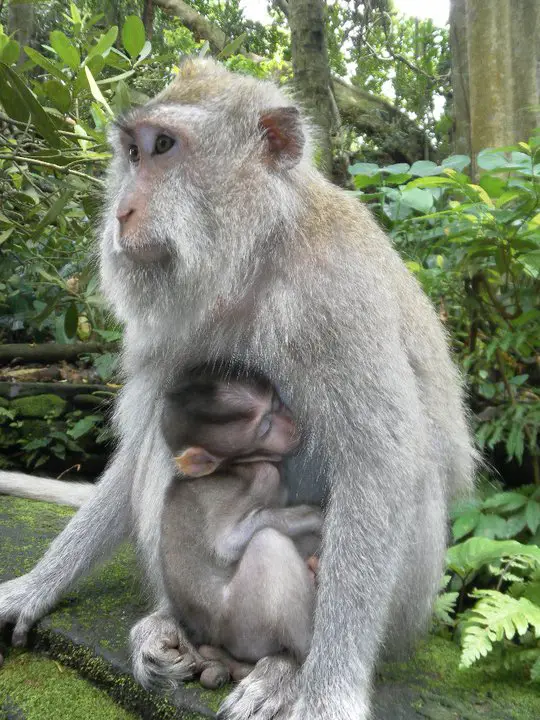
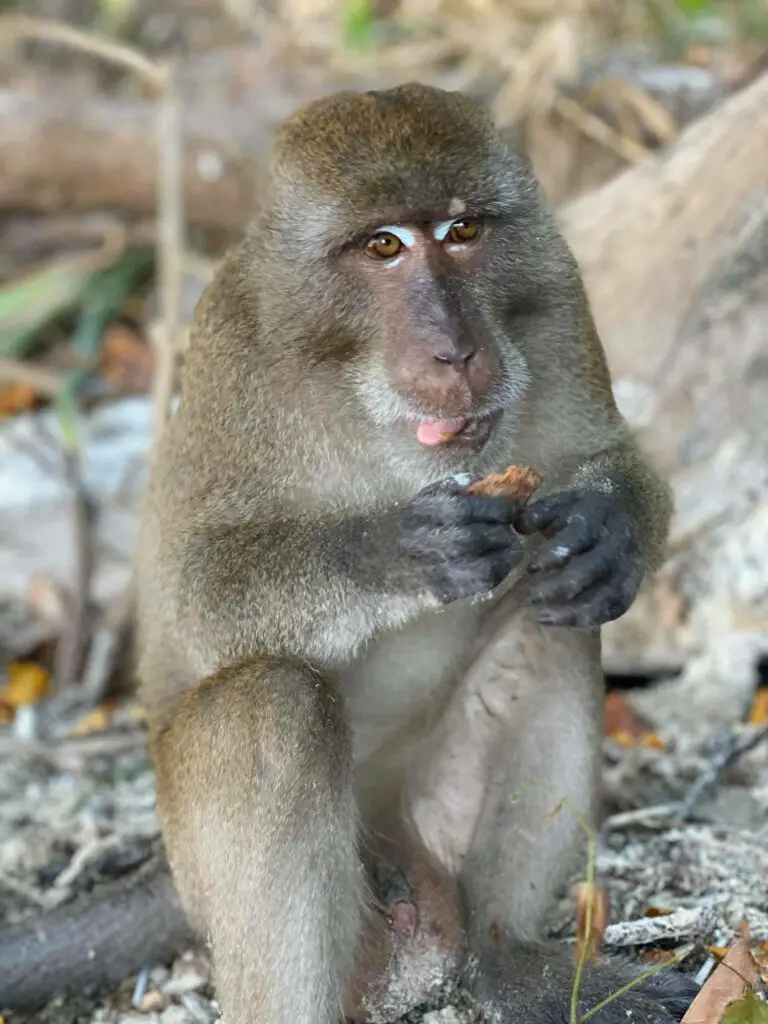
The Playful Proboscis Monkeys of Phuket
When it comes to playtime, the Proboscis Monkeys of Phuket are the masters of mischief. These mischievous monkeys are known for their playful antics and clever pranks. Whether it’s swinging from tree branches or stealing snacks from unsuspecting tourists, these monkeys always keep everyone entertained. But don’t be fooled by their playful nature, as they are also highly intelligent and resourceful. They have been observed using tools to extract food from hard-to-reach places, showing off their problem-solving skills. So if you ever visit Phuket, be prepared for some monkey business and unforgettable encounters with these hilarious creatures!
If you’re planning on visiting Thailand’s popular island destination, Phuket, be prepared to meet some lively monkeys. One of the most iconic spots to observe these furry creatures is Monkey Hill. As the name suggests, it’s a hill inhabited by a large troop of monkeys. You can hike to the top of the hill and enjoy panoramic views of Phuket while observing the monkeys in their natural habitat. Just be cautious with your belongings and avoid feeding the monkeys as it can encourage aggressive behavior.
The Hilarious Gibbons of Krabi
When it comes to comedy, the gibbons of Krabi are the real stars of the jungle. These mischievous primates have a knack for making everyone laugh with their silly antics and playful behavior. Whether they’re swinging from tree to tree with grace or engaging in hilarious grooming sessions, the gibbons know how to entertain. But don’t be fooled by their funny nature, these clever creatures are also known for their problem-solving skills and tool use. They can outsmart even the most cunning of puzzles and leave you in awe of their intelligence.
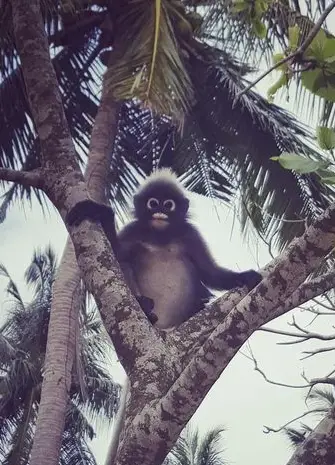
If you ever get the chance to visit Krabi, make sure to pay a visit to the Gibbon Rehabilitation Sanctuary. This amazing organization has been doing incredible work reintroducing gibbons back into the wild. You’ll have the opportunity to see these hilarious creatures up close and personal, and maybe even witness their famous acrobatic displays. It’s an experience you won’t want to miss!
Monkeys and Coconut Milk: A Refreshing Combo
When it comes to monkeys and their love for all things edible, one thing you may have heard of is their fondness for coconut milk. In many parts of Thailand, it’s common to see monkeys sitting on trees, expertly opening coconuts with their bare hands and enjoying the sweet juice inside. Witnessing this spectacle can be both amusing and impressive. Just remember to keep a safe distance as these creatures are known to get a little territorial when it comes to their snacks!
Thailand Monkeys Picking Coconuts
Thailand’s monkey training schools in Surat Thani province have long trained Long-tailed macaques to pick coconuts, a traditional practice that has recently come under scrutiny for animal welfare reasons. Some businesses have ceased this practice and it remains a contentious topic.
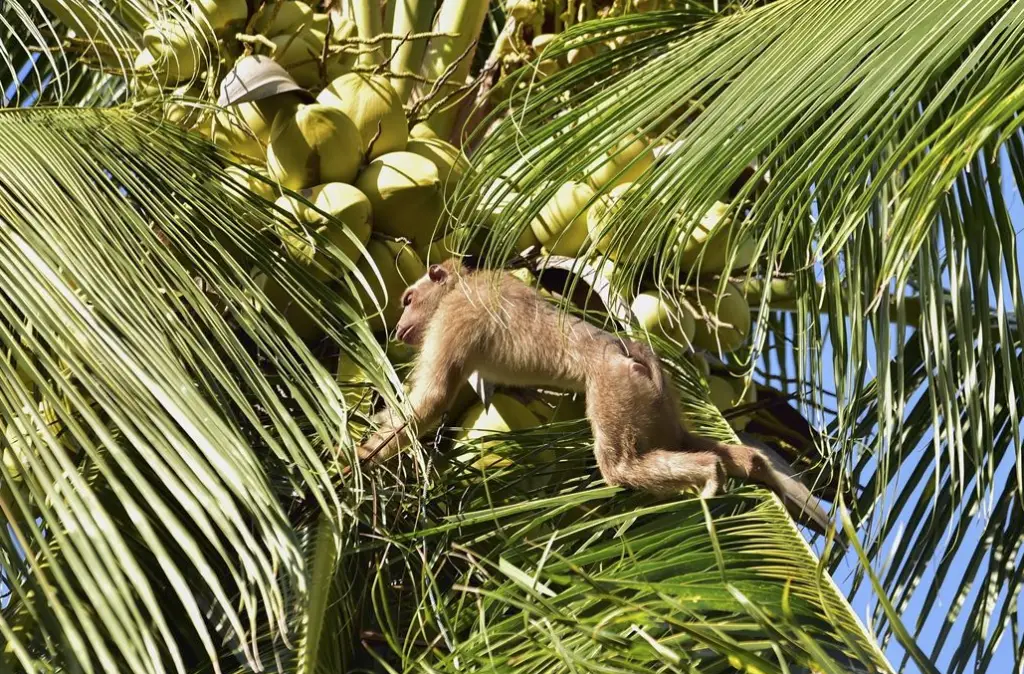
Monkey Species in Thailand: A Diverse Bunch
Thailand is home to several monkey species, each with its own unique characteristics and habitats. Some of the most commonly found monkey species in Thailand include:
- Long-tailed macaques: These are the “classic” monkeys you’re likely to encounter in various parts of the country, especially around urban areas and popular tourist spots.
- Pig-tailed macaques: With their distinctive pigtails, these monkeys are often found in the rainforests of southern Thailand.
- Dusky leaf monkeys: Recognizable by their striking black fur and white faces, these leaf-eating monkeys can be spotted in the southern regions of Thailand.
While these are the most prevalent species, there are a few others scattered across the country as well. Keep your eyes peeled for these fascinating creatures during your Thai adventure!
Monkey Hotspots in Thailand
Thailand offers incredible opportunities for monkey enthusiasts to observe these captivating animals in their natural environment.
Top Monkey Viewing Locations
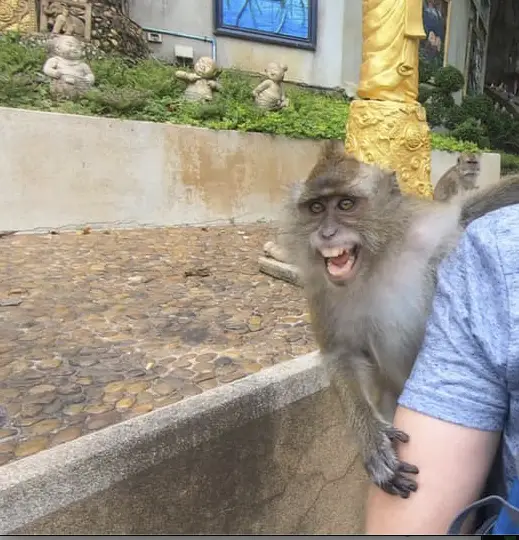
- Phra Prang Sam Yot Temple in Lopburi: Known as the Monkey Temple, this iconic site is home to hundreds of macaques that reside among the ancient ruins.
- Khao Wang Palace in Phetchaburi: Situated on a hilltop, this historical palace provides visitors with breathtaking views of the surrounding landscape and a chance to observe the resident monkeys.
- Don Phai Island in Krabi: Explore the mangrove forests of this lush island and encounter a diverse range of monkey species, including the elusive Dusky Langur.
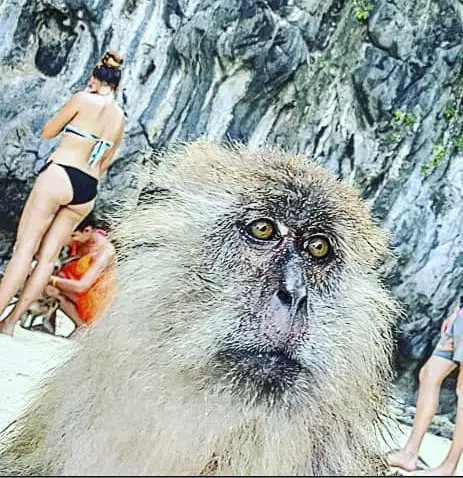
Monkey Beach Thailand
Monkey Beach is a stunning locale on Phi Phi Island where tourists can interact with monkeys in their natural habitat. Home mainly to the Long-tailed macaque, the monkeys are known to approach tourists, especially those bearing food. Beach conditions and monkey interaction should always be approached with caution to maintain safety for both visitors and the monkeys.
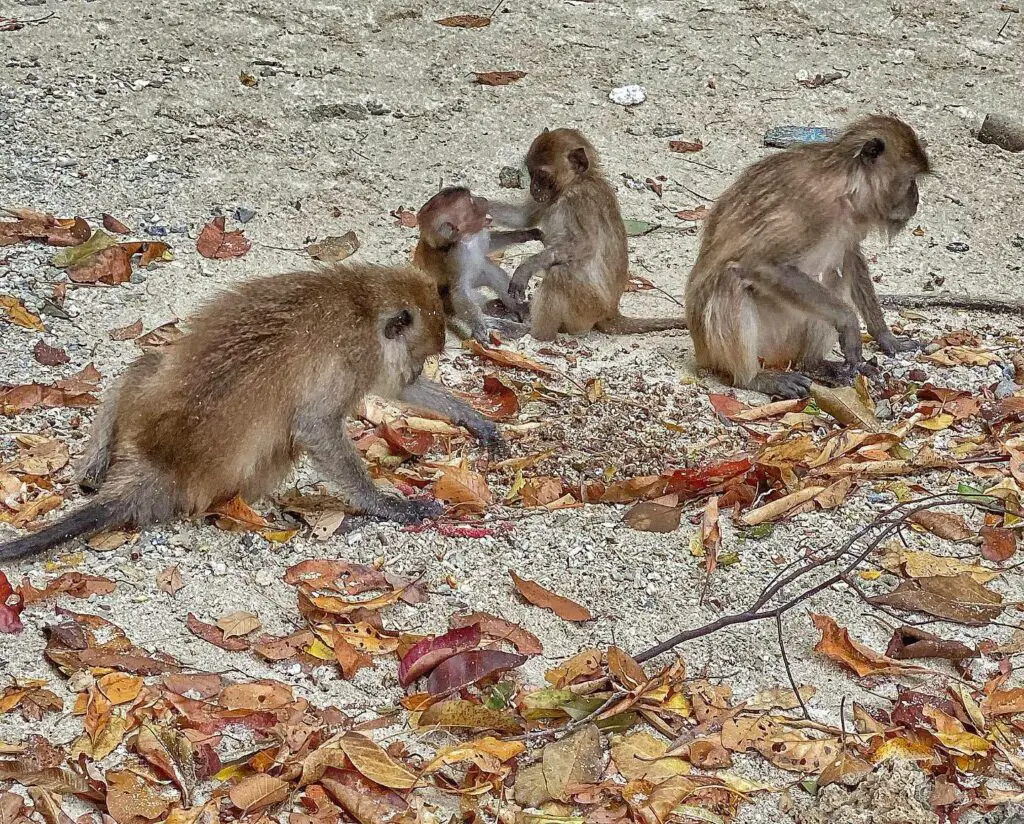
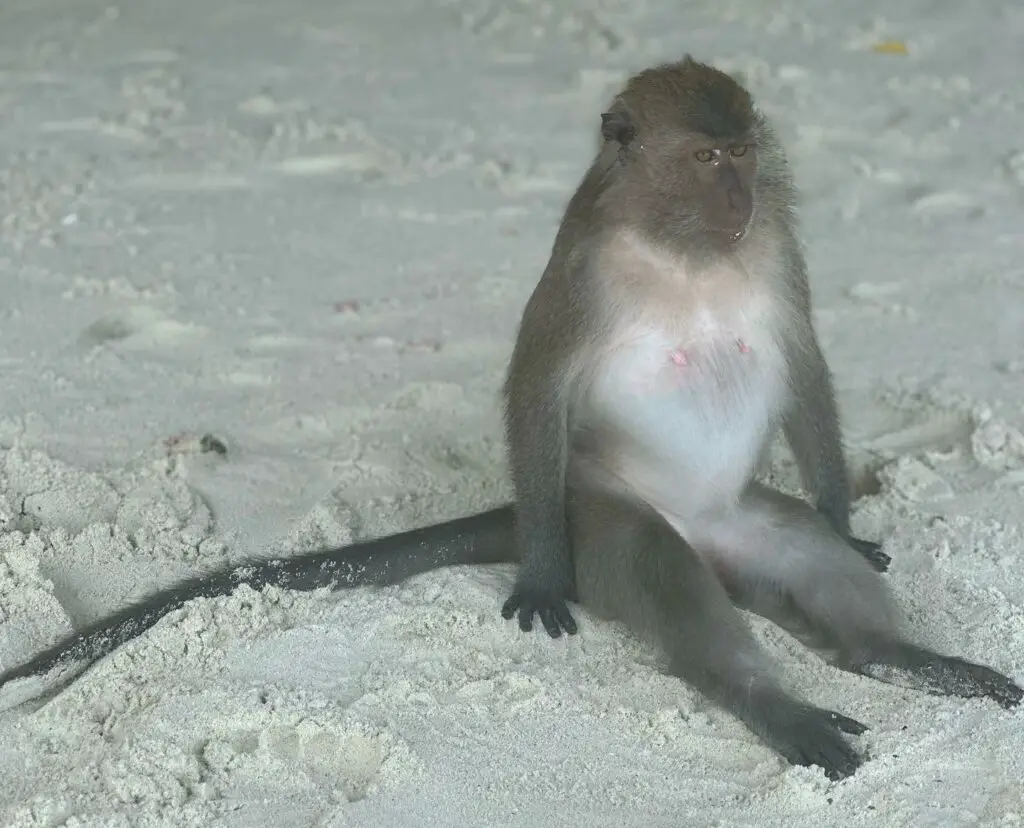
City of Monkeys Thailand (Lopburi)
Lopburi, often referred to as the “City of Monkeys”, is famous for its large populations of Crab-eating macaques that live within the city, especially around the Khmer temple, Prang Sam Yot. The monkeys have become an integral part of the city’s identity and tourist appeal, culminating in the yearly Lopburi Monkey Festival where they are celebrated.
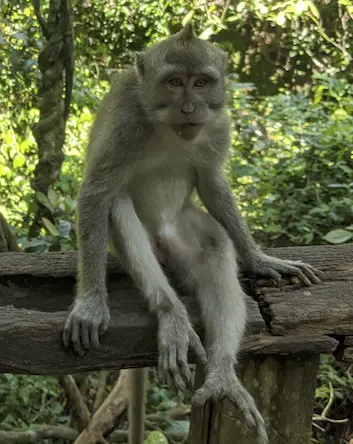
Thailand Cave Monkeys
Cave-dwelling monkeys in Thailand, specifically in regions like Krabi, can be found near limestone cliffs and in the coastal cave systems. While not as commonly interacted with by tourists, these monkeys are an intriguing component of the local ecology.
Monkeys in Central Thailand
Central Thailand, with its varied landscapes ranging from plains to forests, supports populations of macaques and langurs. Their adaptability allows them to coexist in proximity to human settlements, often leading to fascinating encounters for travellers.
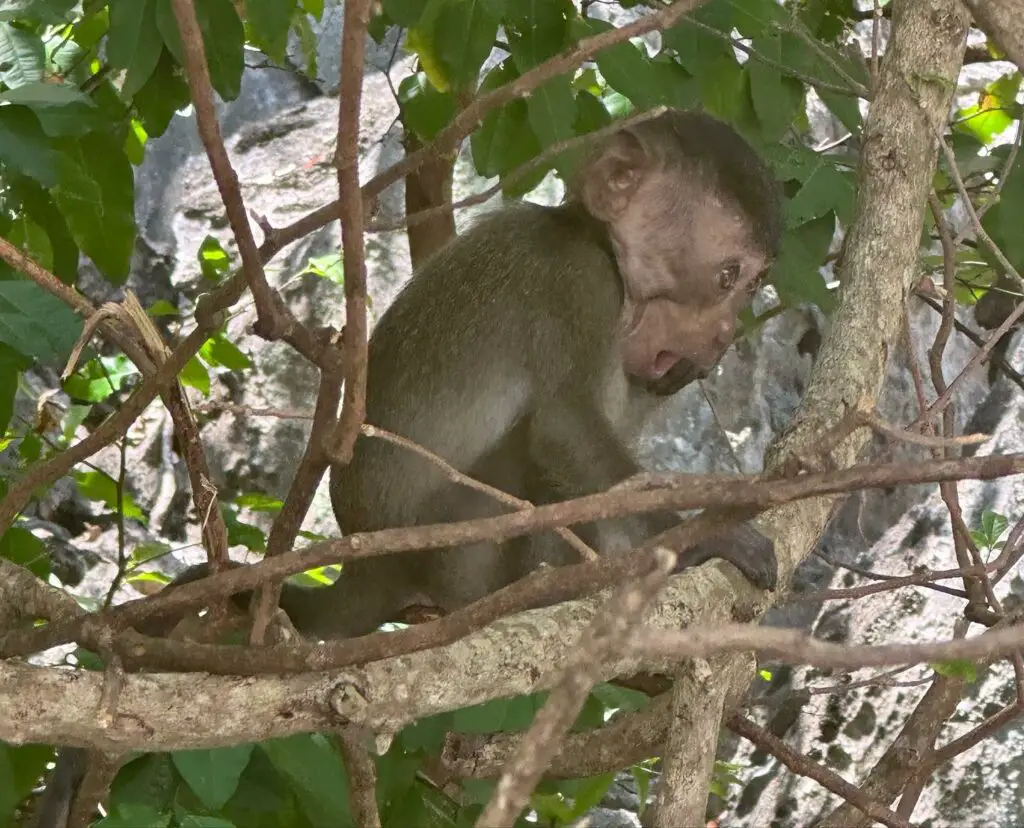
Monkey Villages
Monkey villages in Thailand, such as Lopburi with its ancient ruins, embrace their local monkey populations as part of the community and a tourist draw. Annual festivals celebrate the monkeys, and tourists can observe them in a more urban environment. Despite the novelty, human and monkey conflicts can arise, necessitating careful coexistence strategies. Lopburi Monkey Festival
Monkey Sanctuaries in Thailand
Thailand is home to various monkey sanctuaries that offer refuge to primates in need. These facilities aim to provide a safe environment for rehabilitation and fend against the illegal pet trade and exploitation. The Phetchaburi Monkey Sanctuary is one example of a place where animals are treated with respect and where visitors can learn about conservation while observing monkeys. It’s essential to research and support ethical sanctuaries.
The Phuket Monkey Sanctuary is one of several facilities in Thailand dedicated to the care of rescued monkeys. They work towards rehabilitation and provide an educational platform for visitors to learn about the animals in a responsible setting. Contribution to such sanctuaries aids in conservation and proper treatment of monkeys. Phuket Monkey Sanctuary
Monkey Diving in Thailand
For diver enthusiasts, Thailand offers the unique opportunity to observe “Monkey Dive” or “Diving with monkeys” in places like Monkey Bay near the Phi Phi islands where monkeys are spotted on cliffs by the sea. It is a picturesque blend of Thailand’s rich marine life and its playful terrestrial wildlife.
Monkey Temple Adventures
One unique aspect of Thailand’s monkey population is their association with temples. Some temples, like the famous Monkey Temple (also known as Wat Suwannaram) in Phetchaburi, are home to large groups of monkeys. These monkeys have become an integral part of the temple’s charm, and visitors can watch them roam freely in the temple grounds. Just be cautious of your belongings as the monkeys are known for their light fingers!
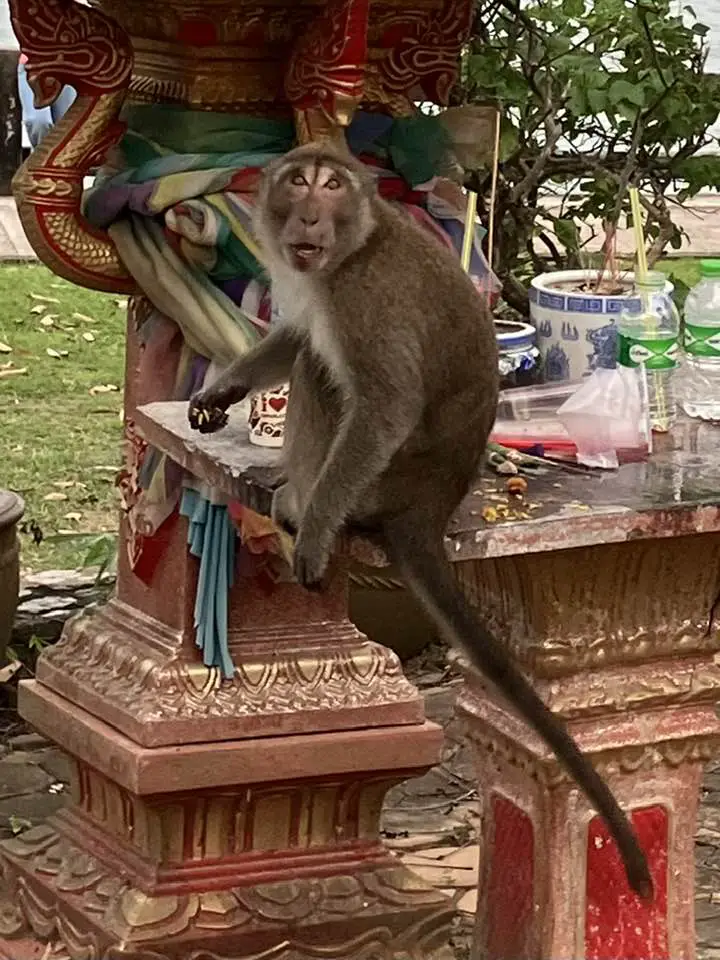
Are There Monkeys in Bangkok?
While Bangkok is a bustling metropolis, monkeys can occasionally be seen in the city’s outskirts or certain parks, such as the Lumphini Park, where they have been known to thrive due to urban encroachment on their natural habitats.
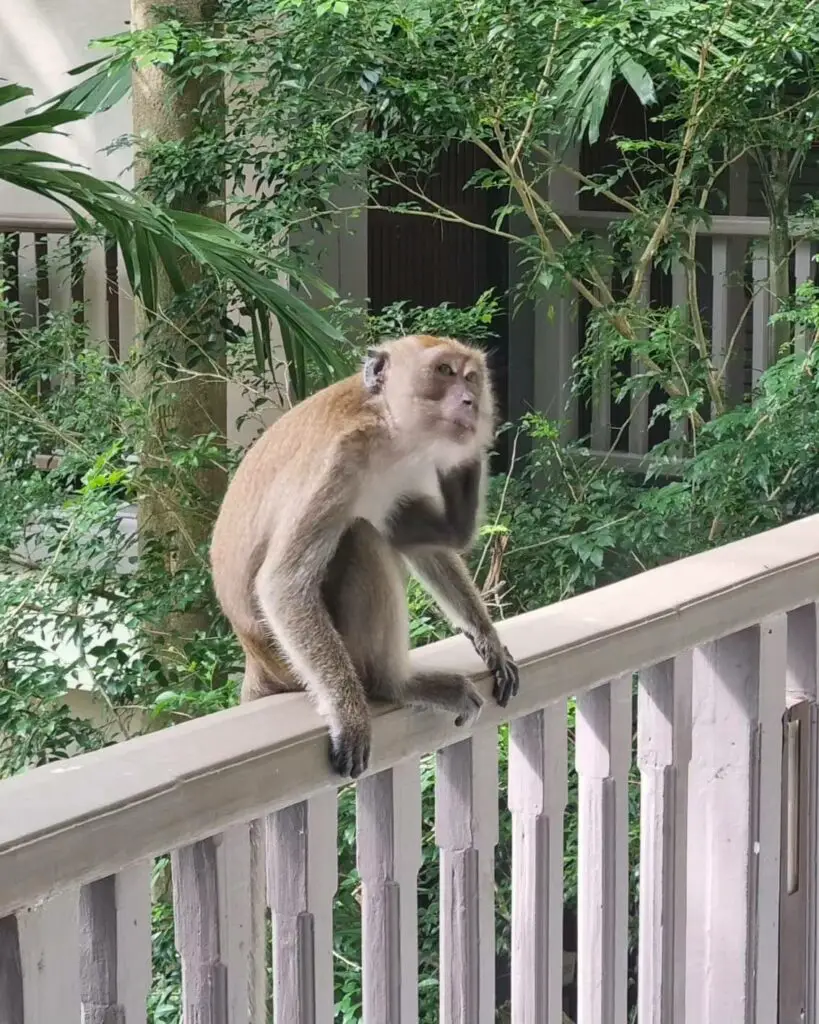
In Bangkok, Rhesus macaques have been reported, although they are less common. The city’s urban environment is not ideal for most monkey populations; however, occasional sightings are not unheard of.
Monkey Island (Phuket): A Primate Paradise
If you’re looking to take your monkey adventures to the next level, consider visiting Monkey Island. Located in the Gulf of Thailand, Monkey Island (also known as Koh Phi Phi Don) offers a unique opportunity to observe monkeys in a stunning beach setting. Relax on the beach while monkeys play in the nearby palm trees or take a boat tour around the island to spot them in their natural habitat. Just be sure to follow any guidelines or instructions given by the local authorities to ensure a safe and memorable experience.
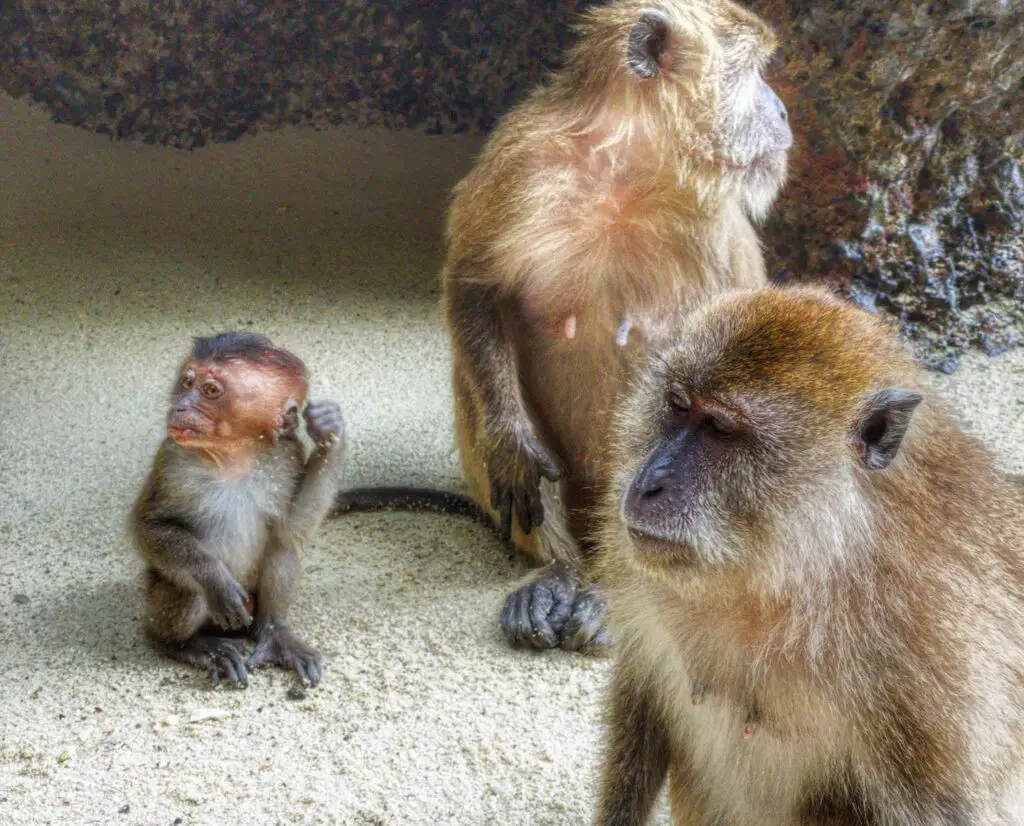
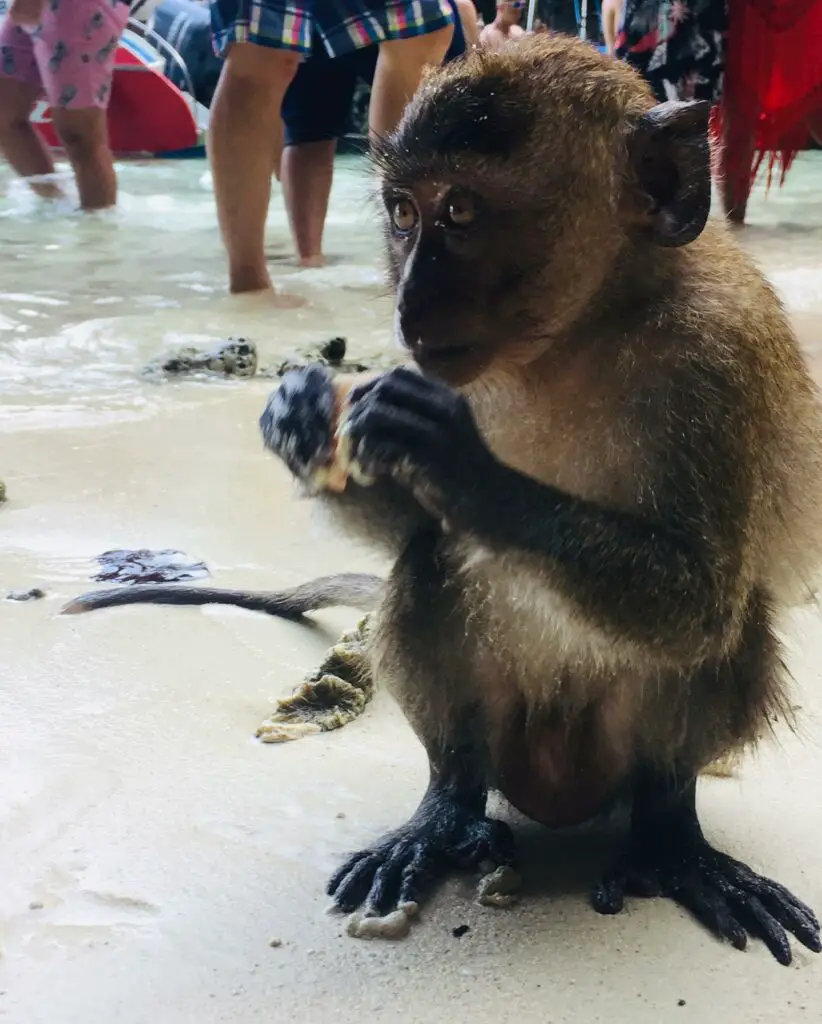
Etiquette and Safety Tips When Interacting with Monkeys
When visiting monkey hotspots, it’s essential to be mindful of your behavior to ensure the safety and well-being of both yourself and the monkeys. Avoid making sudden movements or loud noises that may startle them. Do not attempt to touch or hand-feed the monkeys as this can lead to aggressive behavior. Always follow the instructions provided by park rangers or guides to ensure a positive and respectful experience.
PETA Thailand Monkeys
PETA (People for the Ethical Treatment of Animals) has been a vocal advocate against the exploitation of monkeys in Thailand, particularly regarding their use in the coconut industry. They report that primates are often captured and trained, sometimes cruelly, to climb trees and pick coconuts for commercial production. PETA’s investigations have led to several retailers boycotting coconut products from Thai suppliers who practice such methods. Read PETA’s Report
Thailand Monkey Slave Labor
The use of monkeys in slave-like conditions, particularly in the coconut industry, has sparked international outrage. Investigations suggest that some farms keeping monkeys chained, isolated, and trained aggressively to harvest coconuts. As awareness grows, there is an international push for more ethical practices and compliance with animal welfare standards. Coconut Industry Ethics
Beware of Monkey Bites
While monkeys can be cute and entertaining, it’s essential to remember that they are wild animals. Occasionally, encounters with monkeys can lead to bites or scratches, especially if they feel threatened or if food is involved. It’s crucial to maintain a safe distance and avoid feeding them directly. If you’re unsure of how to interact with monkeys, it’s best to observe them from a distance and respect their space.
It’s imperative to seek medical advice promptly if scratched or bitten. The Centers for Disease Control and Prevention (CDC) provides guidelines on necessary actions following such incidents. Post-Exposure Measures
Monkey Attacks: Rare but Possible
Though it’s uncommon, there have been instances of monkey attacks in Thailand. These incidents often occur when monkeys feel threatened, provoked, or when there is the presence of food. To minimize the risk of such encounters, refrain from getting too close to the monkeys, avoid direct eye contact, and never attempt to take their food. By exercising caution and respecting their space, you can reduce the chances of a negative interaction.
Do Thailand Monkeys Have Rabies
Monkeys in Thailand can carry rabies, but the incidence rate is not notably high. Nevertheless, tourists are advised to be cautious, avoid direct contact with wild monkeys, and seek medical attention if bitten or scratched.
Precautions:
- Avoid Provoking: Monkeys can be unpredictable
- Vaccination Advice: Seek medical advice on rabies vaccination prior to travel
Do Thai Monkeys Steal From Tourists?
Tourists often encounter monkeys stealing belongings, especially in areas with high primate populations. The animals have become skilled at snatching items from unwary visitors, such as sunglasses, cameras, and food, sometimes even entering hotel rooms. Travelers should keep their belongings secure and be cautious of their environment to avoid these monkey misdemeanors.
Monkeying in the Water: Swimming Monkeys of Thailand
While monkeys may not be known for their swimming abilities, there are a few places in Thailand where you can witness these primates taking a dip. One such place is the Monkey Beach in Koh Phi Phi, where monkeys have become accustomed to interacting with tourists. You can enjoy snorkeling or swimming along with the monkeys, creating a unique and memorable experience. However, always be mindful of their behavior and respect their natural environment.
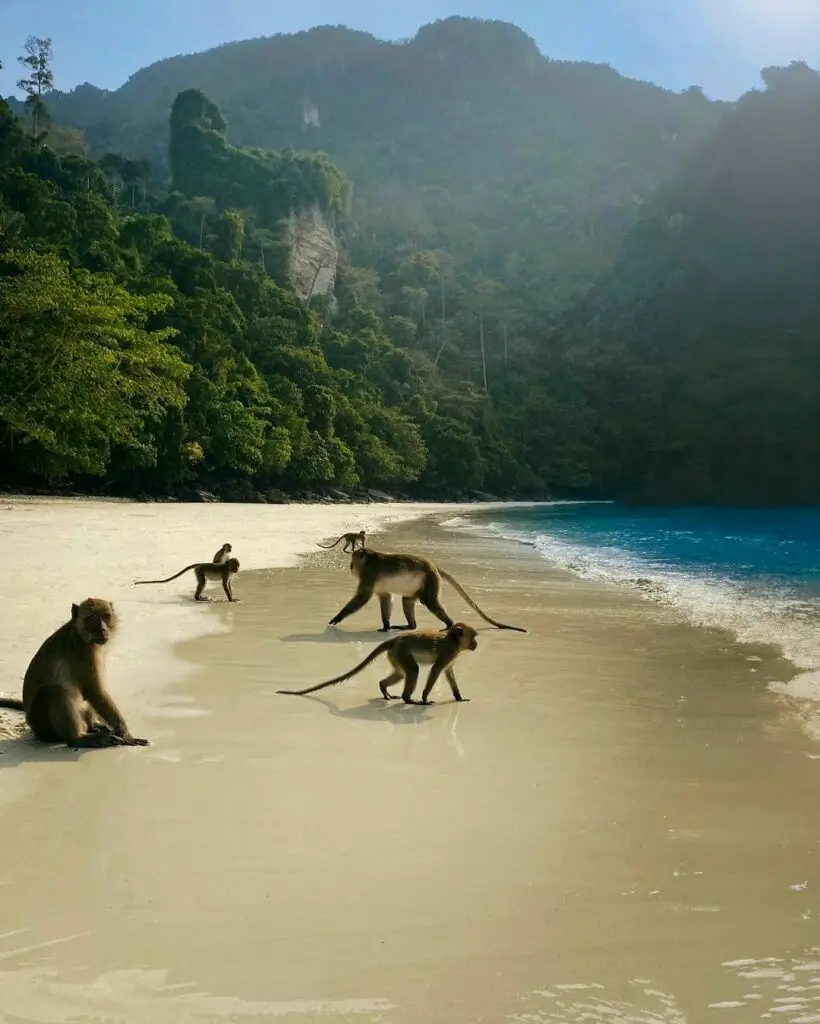
Monkey Magic: Legends and Folklore of Thai Monkeys
The Monkey King: Tales of Hanuman in Thai Mythology
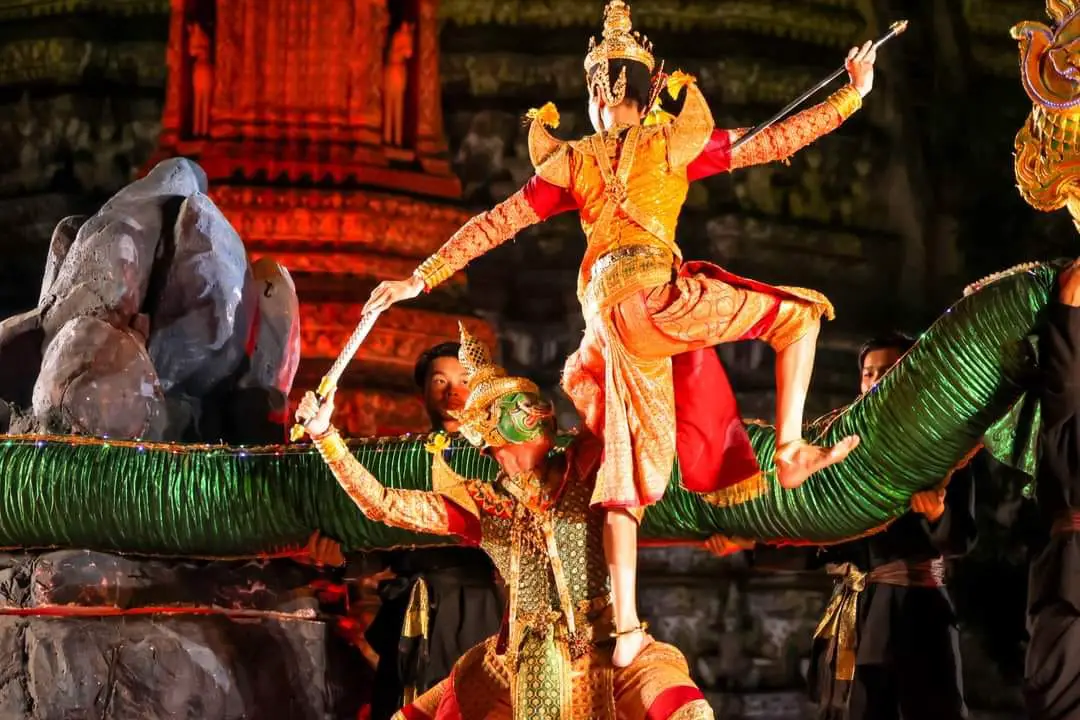
In Thai mythology, the Monkey King holds a special place. Known as Hanuman, this mischievous and powerful deity is revered for his strength, agility, and wit. According to legend, Hanuman played a crucial role in the epic Ramayana, helping Prince Rama rescue his wife Sita from the demon king Ravana. Hanuman’s adventures are filled with daring feats and hilarious escapades. Here are some fascinating tales of Hanuman:
- Hanuman’s giant leap across the ocean to reach the island of Lanka.
- Hanuman’s transformation into a giant to intimidate his enemies.
- Hanuman’s devotion to Lord Rama, symbolizing loyalty and selflessness.
Hanuman is a divine monkey warrior and a symbol of loyalty and courage. This historical connection has fostered a cultural fascination with monkeys and influences the way they are perceived in Thailand today.
Tip: If you ever encounter a mischievous monkey in Thailand, remember to treat them with respect and a sense of humor. They may just be channeling their inner Hanuman!
Monkey Guardians: Monkeys as Protectors and Tricksters
Monkeys have long been regarded as guardians and tricksters in Thai folklore. These mischievous creatures are believed to possess supernatural powers and are often associated with protection and good luck. In many temples and sacred sites across Thailand, monkeys are revered as sacred beings and are even considered the guardians of the premises. They are believed to ward off evil spirits and bring blessings to those who visit. However, their mischievous nature also makes them notorious tricksters. They are known for stealing food, personal belongings, and even causing mischief in the streets of cities like Bangkok and Chiang Mai. So, if you encounter a monkey during your visit to Thailand, be prepared for some playful antics and keep a close eye on your belongings!
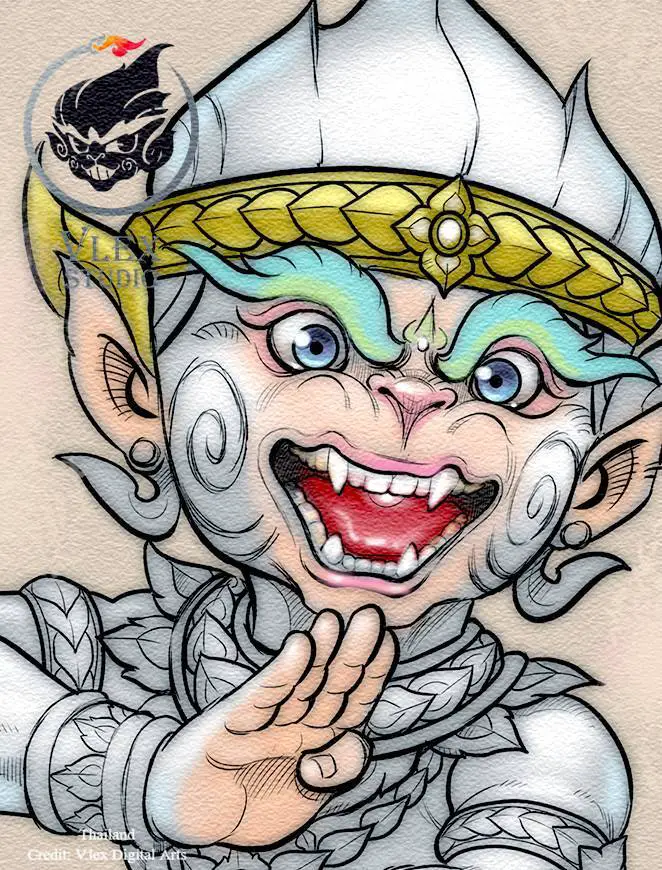
Monkey Wisdom: Proverbs and Lessons from Monkey Folklore
In Thai monkey folklore, there is a popular saying that goes, ‘See no Evil, Hear No Evil, Speak No Evil Monkeys.’ This saying has its origins in a parable that tells the story of three monkeys whose teacher ordered them not to see, hear, or speak evil. Each monkey tries to follow these directions, but they often find themselves in hilarious situations. The moral of the story is that sometimes it’s best to turn a blind eye, a deaf ear, and a closed mouth to avoid trouble. So next time you find yourself in a sticky situation, channel your inner monkey and remember the wisdom of the ‘See No Evil, Hear No Evil, Speak No Evil Monkeys.’
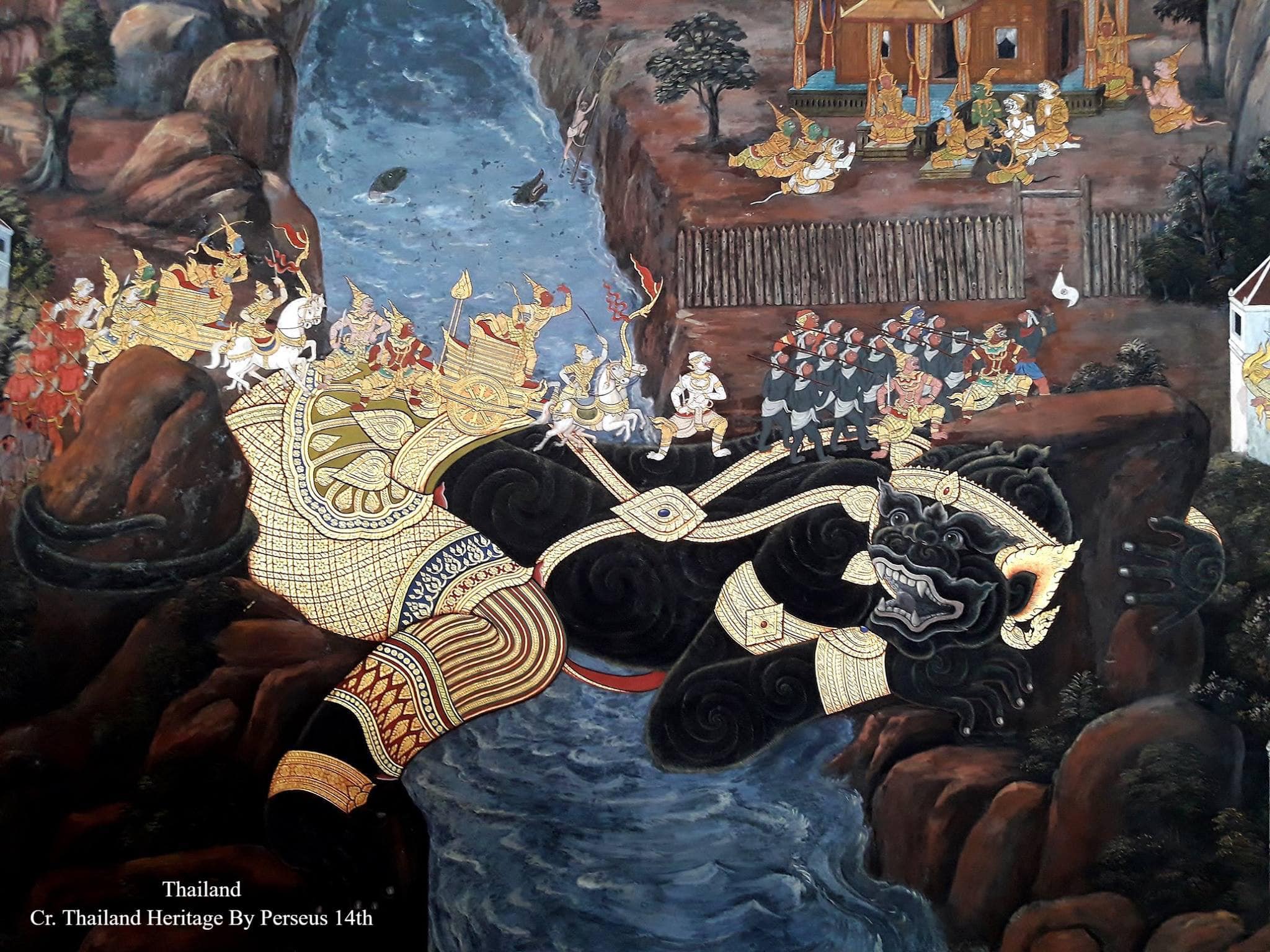
Monkey Legends: Stories of Monkey Heroes and Villains
Get ready for some epic tales of monkey heroes and villains in Thai folklore. These stories have been passed down through generations and continue to captivate audiences with their wild adventures. From the legendary Monkey King Hanuman to mischievous monkey tricksters, here are some of the most famous monkey legends in Thailand:
- The Monkey King: This legendary figure is a central character in Thai mythology. Known for his incredible strength and intelligence, the Monkey King is often depicted as a powerful protector and a mischievous trickster.
- Monkey Guardians: In Thai folklore, monkeys are believed to possess magical powers and are often seen as protectors and tricksters. They are said to bring good luck and ward off evil spirits.
- Monkey Wisdom: Thai proverbs and lessons often feature monkeys as wise and clever creatures. These stories teach valuable life lessons and offer insights into the human condition.
- Monkey Legends: Thai folklore is filled with stories of monkey heroes and villains. From brave warriors to cunning thieves, these legends showcase the diverse personalities and adventures of Thai monkeys.
So, get ready to dive into the fascinating world of monkey legends in Thailand. These stories are sure to entertain and amaze you with their monkey magic!
Conclusion
The fascinating monkeys of Thailand are truly a sight to behold. From their mischievous antics to their impressive acrobatics, these cheeky creatures never fail to entertain. Whether you’re exploring the lush jungles or visiting one of the many monkey sanctuaries, you’re sure to encounter these playful primates. So next time you find yourself in Thailand, keep your eyes peeled for these charismatic creatures and prepare to be amazed!
Frequently Asked Questions
Are Thai monkeys dangerous?
While Thai monkeys can be mischievous and may steal food or belongings, they are generally not considered dangerous to humans. However, it is important to maintain a safe distance and avoid feeding or provoking them.
Can I touch or interact with Thai monkeys?
It is generally advised not to touch or interact with Thai monkeys, as they are wild animals and may become aggressive or transmit diseases. It is best to observe them from a safe distance and respect their natural habitat.
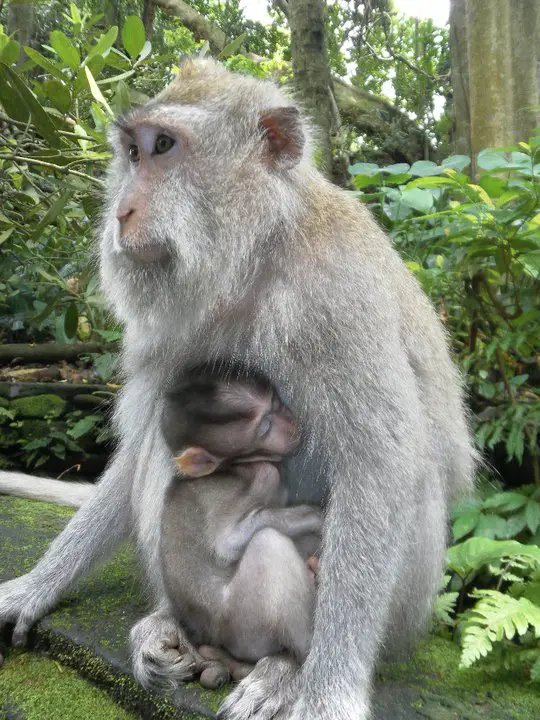
Do They Eat Monkeys in Thailand
Consumption of monkey meat is frowned upon and often against the law in Thailand, as it is in many parts of the world. Thai culture typically does not approve of eating primates.
What are the names of Monkeys in Thailand (Thai)
In Thailand, the local names for monkeys vary; the Crab-eating macaque is called “ling samae”, the Dusky leaf monkey is known as “ling khao”, and so on. Each species’ name correlates with its characteristics or habitat, such as “samae” relating to their diet of crabs.
What should I do if a Thai monkey approaches me?
If a Thai monkey approaches you, it is recommended to stay calm and avoid making sudden movements. Do not make direct eye contact or show your teeth, as these can be seen as signs of aggression. Slowly back away and give the monkey space.
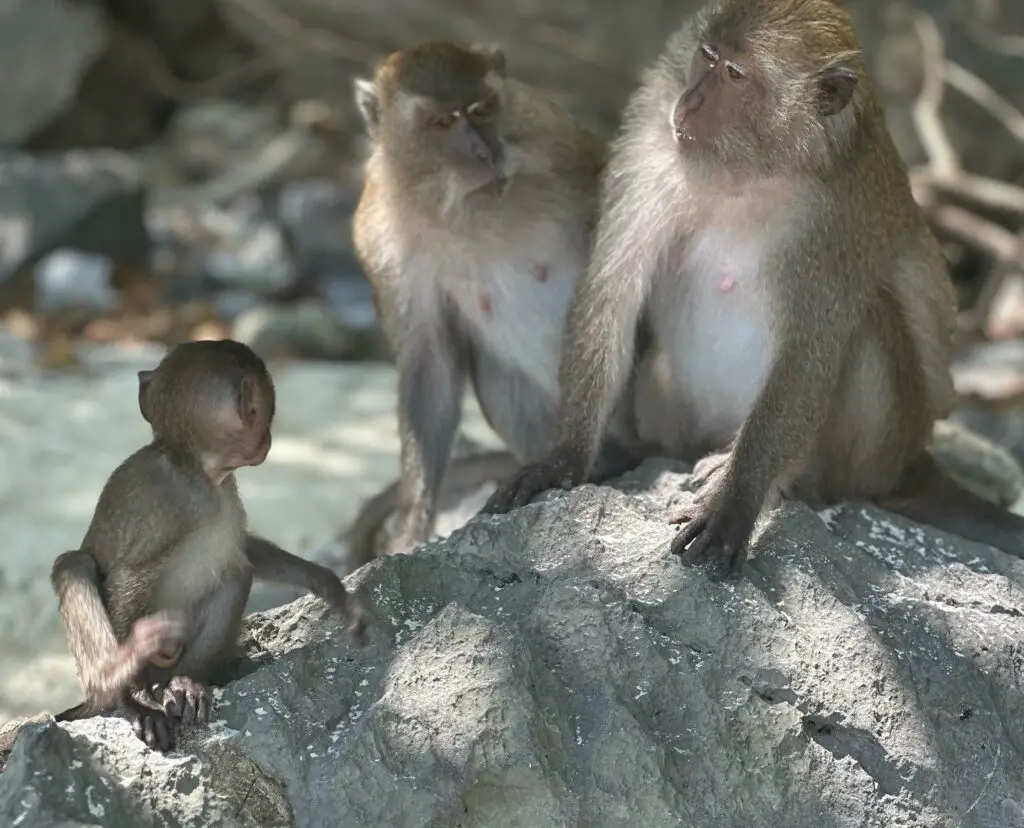
Are Thai monkeys protected by law?
Yes, Thai monkeys are protected by law in Thailand. It is illegal to harm, capture, or trade them without proper permits. Engaging in activities that harm or exploit monkeys can result in fines or imprisonment. Many species of monkeys in Thailand are protected under the Wild Animal Reservation and Protection Act, B.E. 2535 (1992). Thailand also has numerous wildlife sanctuaries and national parks that offer protection and conservation initiatives for primate species.
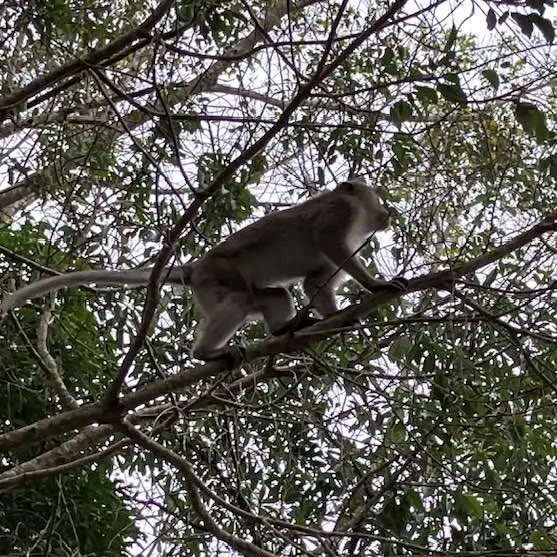
Can I feed Thai monkeys?
Feeding Thai monkeys is generally discouraged, as it can disrupt their natural foraging behaviors and lead to dependence on human food. It may also contribute to aggressive behavior and conflicts among monkeys.
What should I do if a Thai monkey steals my belongings?
If a Thai monkey steals your belongings, it is important to stay calm and not chase or confront the monkey. Attempting to retrieve the item may escalate the situation. Instead, seek assistance from local authorities or park staff who are experienced in handling such situations.
What is “Monkey Shoulder” in Thailand?
“Monkey Shoulder” might allude to a malt scotch whisky popular among some travelers in Thailand. However, the term in this context is more likely a colloquial reference to the impact of carrying a monkey, a tourist activity discouraged by animal rights organizations due to potential stress and harm to the animals. When it comes to wildlife, ethical interactions are key. Responsible Wildlife Interactions
What are Troll Monkeys?
The phrase “troll monkeys” might refer to the cheeky behavior of monkeys who playfully or mischievously interact with tourists, sometimes trolling them by stealing items or causing havoc. While amusing stories can result from such interactions, tourists are reminded to be respectful and careful around these wild animals.
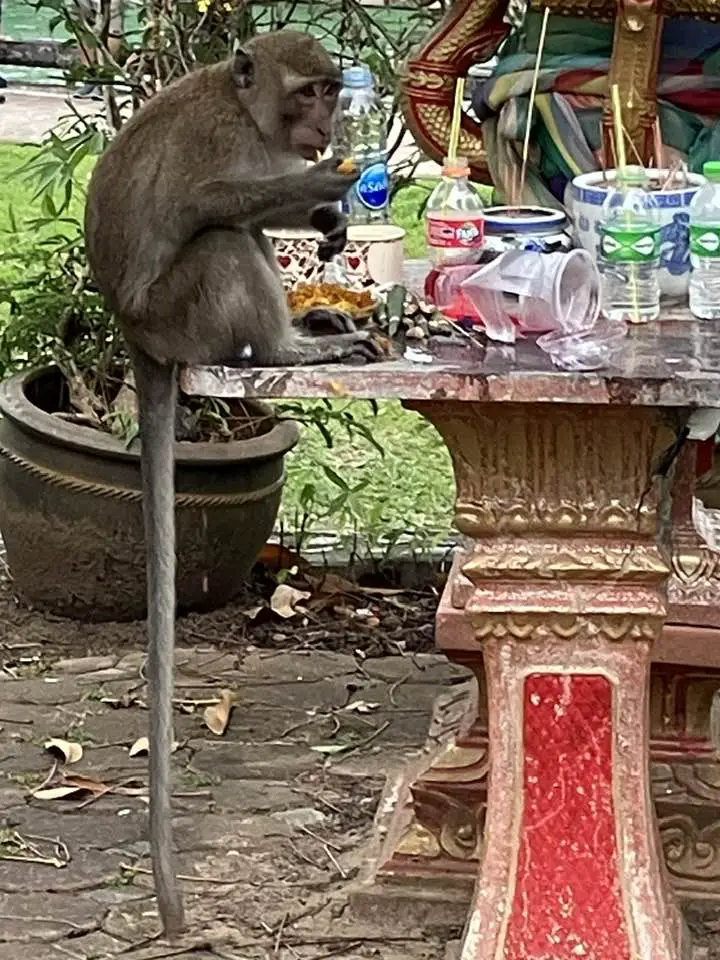
What is a Monkey University?
The notion of a “Monkey University” in Thailand is likely a figurative term describing training centers where monkeys are taught to pick coconuts or perform for entertainment. The ethicality of these places is debatable. Historically, such educative measures have been discussed for their necessity in rural economies, but animal welfare considerations are increasingly challenging their legitimacy. Monkey Education Debate
For further travel resources, consult the following websites:
